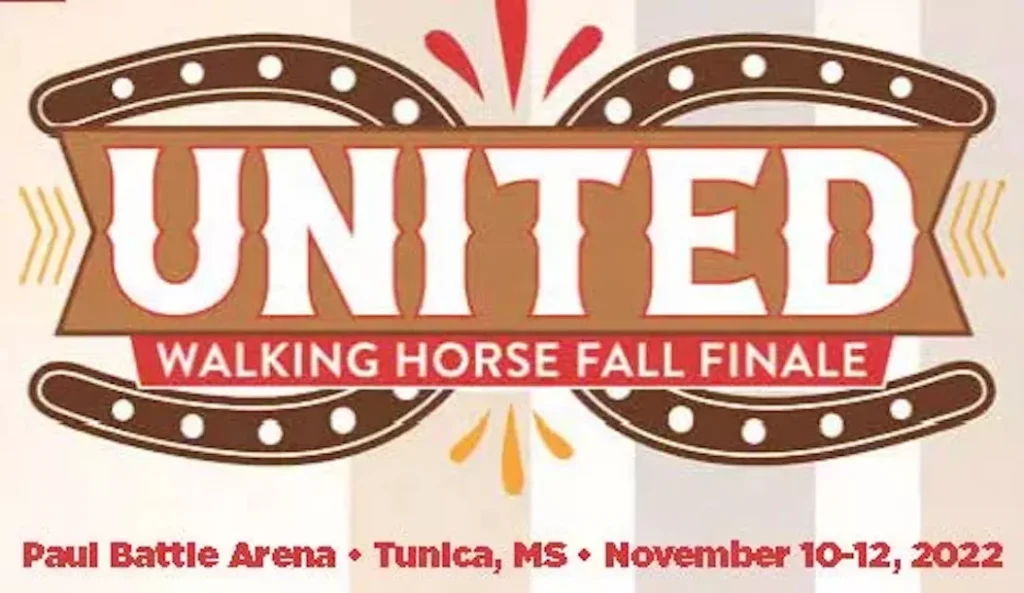Animal Wellness Action helped secure millions more in funding for enforcement, and USDA is using the money to find violators of the Horse Protection Act of 1970, including at Tunica, Miss., finale
WASHINGTON, D.C. – Today, Animal Wellness Action released a letter from USDA Animal Plant and Health Inspection Services (APHIS) Administrator Kevin Shea revealing a third of entrants inspected by USDA were not in compliance with the federal Horse Protection Act at a Tennessee Walking Horse year-end finale held in Tunica, Miss.

The letter comes in response to one sent by Animal Wellness Action executive director Marty Irby to U.S. Secretary of Agriculture Tom Vilsack and Administrator Shea on November 1, 2022, requesting the USDA “step up enforcement of the Horse Protection Act (HPA) with its presence at the United Walking Horse Fall Finale show located at Paul Battle, Jr. Arena in Tunica, Miss., November 10-12,” utilizing federal funding for which the group successfully lobbied and which was included in the final spending bill for FY2022.
USDA did in fact step up enforcement and attend “two of the three days” of the event according to the letter from Shea. Shea also stated the USDA inspected 57 entries, and among those 57, “USDA Veterinary Medical Officers identified 20 instances of suspected HPA noncompliance.”
According to Shea, the horses were disqualified by event management marking an astounding 35% non-compliance rate on USDA inspected horses.
“We’re not one bit surprised to see such a high non-compliance rate at the United Walking Horse Fall Finale, and we applaud the USDA and Administrator Shea for cracking down against the rampant soring that has plagued the Tennessee Walking Horse for seven decades,” said Irby, who also is a past president of the Tennessee Walking Horse Breeders’ & Exhibitors’ Association. “It is time for all stakeholders to come together to forge legislation that will end soring and pass both the House and Senate. With the upcoming farm bill in the 118th Congress as a potential vehicle, the timing is ripe.”
The House has twice passed the Prevent All Soring Tactics (PAST) Act, in 2019 and in 2022, but the measure has stalled in the Senate. It appears that only a compromise measure can get through both chambers of Congress to provide essential improvements and updates to the Horse Protection Act of 1970.
Background:
Soring is the intentional infliction to Tennessee Walking, Racking, and Spotted Saddle Horses’ feet by applying caustic chemicals such as mustard oil, croton oil, diesel fuel, or kerosene to the skin or inserting sharp objects into the horses’ hooves to achieve an artificial pain-based gait known as the ‘big lick’ that’s prized in the Southeastern U.S.
Since inception in 2018, Animal Wellness Action has made increasing funding for enforcement of the HPA a top priority. It secured almost $4.1 million in the House’s Fiscal Year 2023 agriculture spending bill that includes HPA funding, nearly six times the amount appropriated in 2018.
Until 2019, federal funding for HPA enforcement had never exceeded $705,000 for a single fiscal year. Animal Wellness Action, which was formed in 2018, has made HPA funding a top priority in the war to end “soring” – the intentional infliction of pain to horses’ front limbs to induce an artificial high-step gait known as the “big lick” that’s prized at Tennessee Walking Horse shows in the Southeastern U.S.
The larger equine community and animal protection world have long recognized that a lack of HPA funding for enforcement has contributed to the soring events that run rampant, especially in Tennessee and Kentucky. Animal Wellness Action also helped secure HPA funding in the amount of $1 million for FY2020, just over $2 million for FY2021, and $3.04 million for FY2022 in collaboration with leaders in the Tennessee Walking Horse industry.
Animal Wellness Action has long backed the PAST Act that would help end soring by increasing penalties for violators, eliminating devices utilized in soring from the showring, and upgrading the inspection scheme. When the PAST Act passed the U.S. House again on November 14 of this year by a vote of 304 to 110 with 264 cosponsors, it fell short of the 2019 vote of 333 to 96 with 308 cosponsors as the measure has lost steam after a decade of inaction in the U.S. Senate due to opposition from the U.S. Senators that hail from several Southeastern states, including Tennessee.
As a result of the Senate obstruction, the group worked with leaders in the walking horse breed in 2020 to forge compromise legislation that achieved 90 percent of the PAST Act but also included entirely new and humane-minded add-on language, including a provision to eliminate treacherous devices known as tail braces, but some animal groups opposed that effort and prevented a compromise in 2020. Opportunities to amend the old PAST Act remain with the upcoming Farm Bill in the 118th Congress that begins in January. The top Republican on the House Agriculture Committee, Rep. Glenn “GT” Thompson, R-Pa., and top Democrat Rep. David Scott, R-Ga., are longtime cosponsors of the PAST Act as well as Sen. Debbie Stabenow, D-Mich., who chairs the Senate Agriculture Committee.
